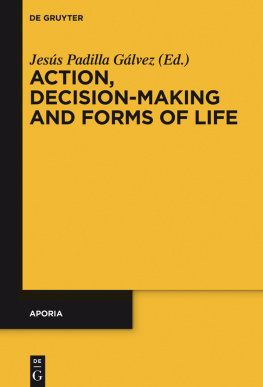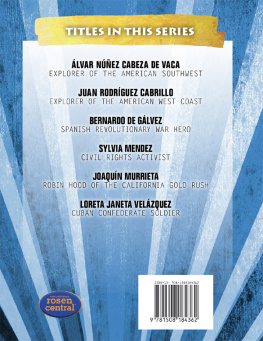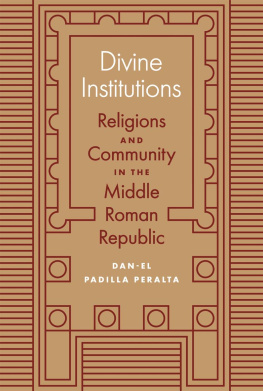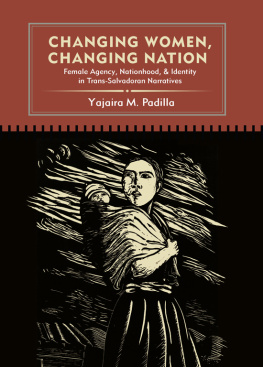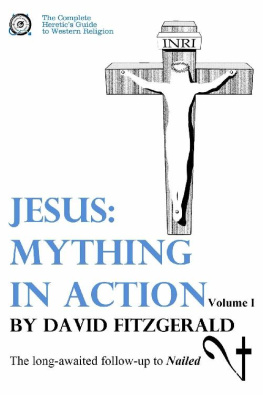Jesús Padilla Gálvez - Action, Decision-Making and Forms of Life: Redaktion: Padilla Gálvez, Jesús
Here you can read online Jesús Padilla Gálvez - Action, Decision-Making and Forms of Life: Redaktion: Padilla Gálvez, Jesús full text of the book (entire story) in english for free. Download pdf and epub, get meaning, cover and reviews about this ebook. year: 2016, publisher: Walter de Gruyter, genre: Romance novel. Description of the work, (preface) as well as reviews are available. Best literature library LitArk.com created for fans of good reading and offers a wide selection of genres:
Romance novel
Science fiction
Adventure
Detective
Science
History
Home and family
Prose
Art
Politics
Computer
Non-fiction
Religion
Business
Children
Humor
Choose a favorite category and find really read worthwhile books. Enjoy immersion in the world of imagination, feel the emotions of the characters or learn something new for yourself, make an fascinating discovery.
- Book:Action, Decision-Making and Forms of Life: Redaktion: Padilla Gálvez, Jesús
- Author:
- Publisher:Walter de Gruyter
- Genre:
- Year:2016
- Rating:3 / 5
- Favourites:Add to favourites
- Your mark:
- 60
- 1
- 2
- 3
- 4
- 5
Action, Decision-Making and Forms of Life: Redaktion: Padilla Gálvez, Jesús: summary, description and annotation
We offer to read an annotation, description, summary or preface (depends on what the author of the book "Action, Decision-Making and Forms of Life: Redaktion: Padilla Gálvez, Jesús" wrote himself). If you haven't found the necessary information about the book — write in the comments, we will try to find it.
Action, Decision-Making and Forms of Life: Redaktion: Padilla Gálvez, Jesús — read online for free the complete book (whole text) full work
Below is the text of the book, divided by pages. System saving the place of the last page read, allows you to conveniently read the book "Action, Decision-Making and Forms of Life: Redaktion: Padilla Gálvez, Jesús" online for free, without having to search again every time where you left off. Put a bookmark, and you can go to the page where you finished reading at any time.
Font size:
Interval:
Bookmark:

Action, Decision-Making and Forms of Life
Aporia /

Edited by
Jess Padilla Glvez
Advisory Board:
Pavo Barii, Michel Le Du, Miguel Garca-Bar,
Margit Gaffal, Guillermo Hurtado, Antnio Marques,
Lorenzo Pea, Nicanor Ursua Lezaun,
Nuno Venturinha, and Pablo Quintanilla
Volume 9

ISBN 978-3-11-047288-2
e-ISBN (PDF) 978-3-11-047367-4
e-ISBN (EPUB) 978-3-11-047300-1
Library of Congress Cataloging-in-Publication Data
A CIP catalog record for this book has been applied for at the Library of Congress.
Bibliographic information published by the Deutsche Nationalbibliothek
The Deutsche Nationalbibliothek lists this publication in the Deutsche Nationalbibliografie; detailed bibliographic data are available on the Internet at http://dnb.dnb.de.
2016 Walter de Gruyter GmbH, Berlin/Boston
www.degruyter.com
Jess P ADILLA G LVEZ
The quest for an explanation of human action has always been a main issue in philosophy. It includes such questions as: Which factors determine human action? What are the basic conditions for actions? Can we distinguish action from other types of movement? Possible answers to these questions depend on the methodological approach that one uses to describe, investigate and explain the phenomenon.
In the course of history philosophers have approached the analysis of human conduct from different perspectives. We shall use the analytic approach to the exploration of actions and their underlying logical structure. As a first step we will focus on the explanation of terms and their disambiguation in the description of human action. In a second step the formal structure of action will be explored. Wittgenstein submitted that, when describing the meaning of words such as action or deed, we do not explain the reasons for actions nor justify why one acts in a specific way.
We use a phenomenological approach to the description of linguistic contents. In the description of the meaning of action and related terms we are, however, restricted by the limits of the expressible. The limits of what can be said are therefore drawn in language. Therefore the analysis of what can be said about action results inevitably in a paradox. Descartes attributed this paradox to a fictional distinction between different types of movements. If we draw our attention to bodily movements we will notice some of them being caused by a physiological functioning of the inner organs or by a natural change of the physical condition (e.g. heart beats or unconscious moves as a reaction to a stimulus). movements and viewed them as intentional motions caused by a persons volont . Free will is the key criterion to distinguish deliberate movement from involuntary locomotion.
From this perspective, the original quest for the meaning of action has turned into an analogue distinction between types of movements. A thought experiment was used to discern voluntary human action from spontaneous bodily movements. Through analogy we have shifted our interest from the analysis of the concept of action to the taxonomy of movements. Contemporary scholars such as Davidson have used a similar approach to the study of human action. Observing daily habitual actions he proposed a distinction between routine and accidental actions. In the following quotation he exemplifies the difference between the two types of movement:
This morning I was awakened by the sound of someone practicing the violin. I dozed a bit, then got up, washed, shaved, dressed, and went downstairs, turning off a light in the hall as I passed. I poured myself some coffee, stumbling on the edge of the dining room rug, and spilled my coffee fumbling for the New York Times.
It seems that Davidson is interested to know which actions reveal agency and what distinguishes them from other actions occurring unexpectedly. The idea for a categorization of actions is not new. In fact, a review of philosophical research reveals that several scholars have introduced distinctions of various kinds, thus leaving the original questions unanswered.
Descartes started out from the assumption of an individuals free will which he viewed as sufficient criterion for a further distinction between activity and passivity. As activity is connected to a person he introduced a first-person-subject who decides what is active or passive. It means in effect that a privileged subject seems authorized on his or her own free will to carry out actions and thus specify the meaning of active and passive. According to this view, an event is caused by ones thoughts and thereby reveals ones agency. Consequently all active movements have their origin in a persons thoughts that undoubtedly reflect his or her will. Descartes explained his view in the following quote:
Aprs avoir ainsi considr toutes les fonctions qui appartiennent au corps seul, il est ais de connatre qu'il ne reste rien en nous que nous devions attribuer notre me, sinon nos penses, lesquelles sont principalement de deux genres, savoir: les unes sont les actions
Descartes methodological distinction of events into different categories has survived until our days. More precisely, Davidson has revived Descartes theory with the effect that it is still widely accepted among philosophers nowadays. Davidson illustrates the distinction in the following quotation:
Tripping over a rug is normally not an action; but it is if it is done intentionally. Perhaps, then, being intentional is the relevant distinguishing mark. [...]
This mark is not sufficient, however, for although intention implies agency, the converse does not hold. [...] If, for example, I intentionally spill the contents of my cup, mistakenly thinking it is tea when it is coffee, then spilling the coffee is something I do, it is an action of mine, though I do not do it intentionally. On the other hand, if I spill coffee because you jiggle my hand, I cannot be called the agent. Yet while I may hasten to add my excuse, it is not incorrect, even in this case, to say I spilled the coffee. Thus we must distinguish three situations in which it is correct to say I spilled the coffee: in the first, I do it intentionally; in the second I do not do it intentionally but it is my action (I thought it was tea); in the third it is not my action at all (you jiggle my hand). [...]
Can we now say which events involve agency? Intentional actions do, and so do some other things we do. What is the common element? Consider spilling coffee again. I am the agent if I spill the coffee meaning to spill the tea, but not if you jiggle my hand. The difference seems to lie in the fact that in one case, but not in the other, I am intentionally doing something. My spilling the contents of my cup was intentional; as it happens, this very same act can be redescribed as my spilling the coffee. Of course, thus redescribed the action is no longer intentional; but this fact is apparently irrelevant to the question of agency. And so I think we have one correct answer to our problem: a man is the agent of an act if what he does can be described under an aspect that makes it intentional.
We shall examine the results that may be drawn from these considerations scrutinizing clearly what they show and what they hide. In my opinion, the Cartesian distinction fails to provide a plausible explanation for the cause and purpose of human agency. The following three main objections can be raised: First, the introduction of an authorized subject together with a random distinction based on a fictional example seems arbitrary and coincidental. Yet this would mean that a privileged subject claims the authority to interpret what is consid From this perspective an action is based on the language used in the course of this action. A language game in the context of action can never originate from an arbitrarily chosen thought experiment. An individuals considerations on an action would be part of his language game. It is the action that emerges from a language game and not the language game that develops from an action.
Font size:
Interval:
Bookmark:
Similar books «Action, Decision-Making and Forms of Life: Redaktion: Padilla Gálvez, Jesús»
Look at similar books to Action, Decision-Making and Forms of Life: Redaktion: Padilla Gálvez, Jesús. We have selected literature similar in name and meaning in the hope of providing readers with more options to find new, interesting, not yet read works.
Discussion, reviews of the book Action, Decision-Making and Forms of Life: Redaktion: Padilla Gálvez, Jesús and just readers' own opinions. Leave your comments, write what you think about the work, its meaning or the main characters. Specify what exactly you liked and what you didn't like, and why you think so.

